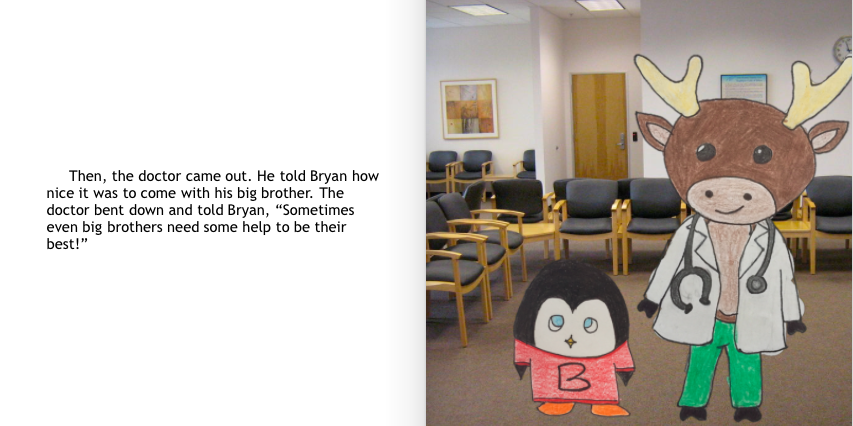A Brotherly Lesson is a 40+ page children’s guide to understanding that mental illness exists, it can affect you or the ones around you, and there are ways to overcome it. The story focuses on a young boy whose older brother is no longer interested in spending time together due to his unhappiness. Although they once spent their days climbing through caves, flying high into the sky, or escaping from erupting volcanoes, Robbie is battling with his mental illness and doesn’t have time for more adventures. Through talking about the issue, supporting each other, and reaching out to others for help, Robbie and his little brother, Bryan, learn how to support each other’s health and get back to their fun!
The book addresses difficult lessons but uses appealing illustrations and a vibrant story to make it accessible to kids. In addition, there is a set of discussion questions at the end of the book to help spur conversations. Whether you are a teacher, a librarian, or a parent, this book is a fantastic starting place to show children the reality of mental health.
The project was written by a mental heath advocate to share many of the central lessons of mental health to a younger audience. He partnered with an elementary school teacher and self publishing veteran to ensure that the book is written so that elementary students can effectively comprehend it.
The proceeds from the campaign will go towards costs of publication. The author and illustrator have the goal of making copies widely available to local libraries and schools in the Central Ohio area and beyond. The proceeds will make widespread production and distribution possible. Thus, any proceeds from Kickstarter will go to offsetting these costs. The book is in its final stages as of 1/8/18. It will be ready for publication within a matter of weeks.



The brother sounds very sad, in total despair. How does the medical community define sadness and other normal emotions (human responses to events) as different from “mental illness”? Does this book make clear the distinction so we can all understand?